Monday 11 September New report from the Institute for Security Studies (ISS): “How the AU can promote transitional justice in South Sudan” The Government of South Sudan (GoSS) summoned the U.S. Embassy’s charge d’affaires to formally protest the recent US sanctions against three current and former GoSS officials. During his recent visit to Juba, the… Read more »
Education and Systematic Group Inequalities in Nigeria
On the night between 14 and 15 April, 2014, 276 girls were kidnapped by Boko Haram from their school in Chibok in Borno State in Northeastern Nigeria. The Islamist terrorist group does not believe that girls should attend school, and these girls were targeted precisely because they were in school.
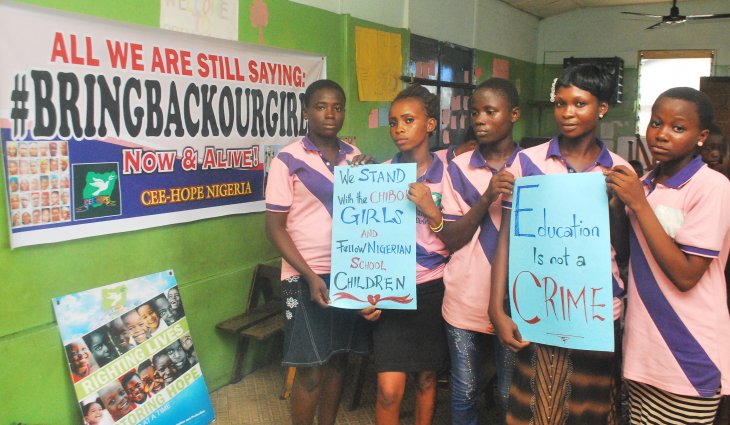
An event to commemorate the first anniversary of the abduction of Chibok school girls in Northern Nigeria. Photo: Cee Hope / Wikimedia Commons
However, conservative views on gender and education is only one reason why many girls in Northern
Nigeria are missing out on education.
Due to large systematic inequalities related to religion, ethnicity and region, many girls are suffering from a triple disadvantage when it comes to educational inequality. Here, we provide an overview of the types and magnitudes of educational inequalities in Nigeria and offers some policy recommendations on how to respond to these inequalities.Read More
Education and Conflict: What the Evidence Says
These are the key conclusions from the first systematical review of the empirical, quantitative literature on the relationship between education and civil conflict.
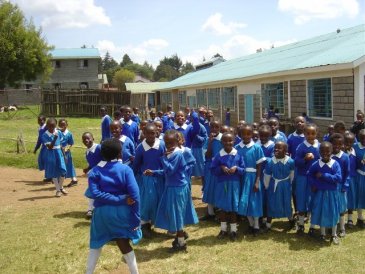
School girls in Kenya. Photo: Gudrun Østby / PRIO
Evidence from 30 statistical studies indicate that
- Increasing education levels overall have pacifying effects
- Rapid expansions of higher education is not a threat
- Education inequalities between groups increase conflict risk
- The quality and content of education may spur conflict
- Terrorists are well above average educated
Batman in Vienna: Choosing How to Confront Migrant Smuggling
There’s a lot to gain from better management of migration. That was the idea that inspired States in 2016 to set out on a path towards a Global Compact for Migration. As a step in the process, UN Member States gathered in Vienna on 4 September to discuss the issue of migrant smuggling.
I was one of three expert panellists invited to speak. We had seven minutes each, so I made a statement that focused on one key issue: a large part of migrant smuggling today is about bringing people out of harm’s way and into a country where they can seek asylum. For many States, the main concern with migrant smuggling is therefore not a rising population of undocumented immigrants, but rather the uncontrolled inflow of people who will be able to settle legally, as refugees.
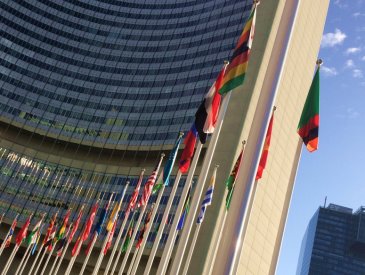
The service that smugglers provide is often expensive, but not necessarily exploitative or deceptive. This point was illustrated also by the two other expert panellists, Gabriella Sánchez and Mark Shaw. In different ways, the three of us asked for a critical look at whether the current strategy of fighting migrant smuggling is a constructive one.
Thereafter followed the ‘interactive discussion’ in which Member States could speak. We had been warned in advance that this is typically neither interactive nor a discussion, but essentially a reading of prepared statements.Read More
This Week in South Sudan – Week 35 & 36
Tuesday 29 August South Sudan’s parliament passed the 2017/2018 budget of 46.5 billion South Sudanese pounds (USD $300M); more than a 30 per cent spending increase from 2016/2017. The Ministry of Finance has previously stated that more than a third of the proposed budget must be funded by external donors. Meanwhile, Kiir has vowed to… Read more »
Information Technology Can Help Build Peace. This Is How.
In a recent episode of the caustic sitcom “Silicon Valley,” the hard-luck start-up protagonists attend a big technology convention. They stumble across an app called PeaceFare, a game that lets players “build peace” on their phones by giving virtual money to virtual homeless people or virtual corn to virtual starving villagers. Launched by a rich entrepreneur to “help humanity thrive,” the lone skeptic Richard snidely asks whether such an app should instead be trying to help actual people.
This gag skewers two truisms — that tech innovations for peace and conflict resolution don’t need to have true social impact to succeed, and most people will only help change the world if it comes without real sacrifice. Thus, it speaks to ongoing controversies. Technology-based approaches to conflict resolution and humanitarian development are admired by policymakers for their promise of bottom-up, quick-fix solutions. Traditional peacebuilding policy — involving careful analysis over years or decades — is being upended as these “disruptive” solutions gain traction. Peace and development researchers who want to influence policy debates can’t just release findings but have to establish mechanisms for implementation.
Indicators can help shape policy debate
One way to do this is more traditional and doesn’t necessarily involve new technologies: building and promoting statistical indicators. For example, the United Nations’ ambitious “2030 Agenda for Sustainable Development,” made up of 17 Sustainable Development Goals (SDGs), sets out targets and benchmarks, but doesn’t say how to measure them. Formulating the indicators that will measure progress was delegated to a specially appointed Inter-Agency and Expert Group (IAEG), consisting mainly of representatives from National Statistical Offices (NSOs).Read More
Building a Sociology of Law for the Humanitarian Field
Legal sociology has paid significant attention to human rights, but in contrast to legal anthropology, little focus has been given to humanitarianism. In this contribution, we ask, what does a legal sociological research agenda for the humanitarian field look like?

Photo: Alexandre Perotto / goodfreephotos.com
Humanitarianism is many things to many people. As described by Miriam Ticktin, humanitarianism is ‘an ethos, a cluster of sentiments, a set of laws, a moral imperative to intervene, and a form of government’; it is ‘one way to do good or to improve aspects of the human condition by focusing on suffering and saving lives in times of crisis or emergency; for instance, humanitarians provide temporary shelter, food, and medical care during wartime or immediately after disasters’. The actors involved include affected populations, civil society, host governments, the private sector, international organizations, humanitarian practitioners, the international humanitarian sector and donors.Read More
Why a War with North Korea Is Unlikely
Here are three scenarios for the North Korean crisis:
The recent flurry of threats between Kim Jong-un and Donald Trump has caused much consternation. Threats can indeed be dangerous but only when they are followed up by hostile action.
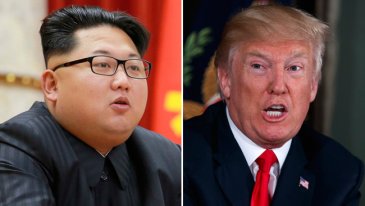
The latest important developments in this crisis have been North Korea’s July 4 and July 28 tests of long-range missiles that may be able to reach the American continent, and the UN Security Council’s unanimous decision on August 5 to impose new harsh sanctions on North Korea. These sanctions may cause much hardship for the North Korean population, and if China and Russia implement them loyally, they may also harm the ruling class in Pyongyang.
I see three scenarios for how the Korean crisis can develop in the next year: War, permanent crisis or a negotiated deal. The first is least likely, the second very likely, and the third more likely than war.Read More
This Week in South Sudan – Week 33 & 34
Dear Readers, please note that there will be no news update next week. We will be back on Monday 11 September with a two-week TWISS update for week 35 and 36. Monday 14 August The SPLA (IO) has allegedly reclaimed their stronghold of Pagak in Upper Nile State, a week after being pushed out of the… Read more »
A Plural Conception of the Nation
Nationalism and the political salience of national identities are on the rise in contemporary Europe and beyond. This rise is often associated with populist movements. These include populist political parties, several in position across Europe today, whose politics are characterized by isolationism and anti-immigration stances, and right-wing populist groups, characterized by xenophobia, sometimes overt racism and anti-Semitism.
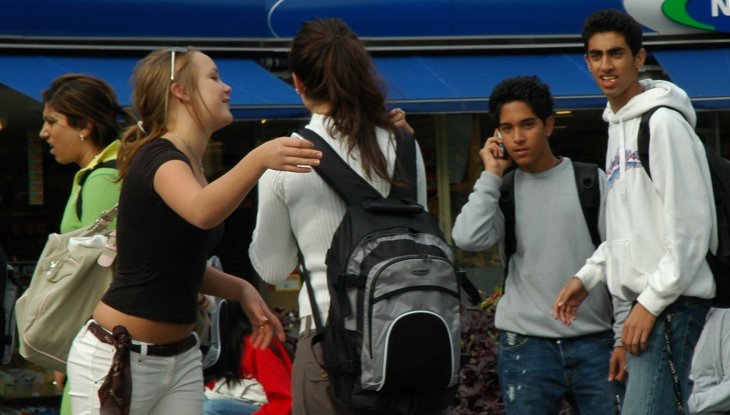
A group of youths in Oslo, Norway. PHOTO: Wikimedia Commons
Meanwhile, mobilizations of the nation need not only be analysed as causally connected with populism. In fact, there is a critical need to engage with the national from contrasting vantage points, in order to unravel the roles which the nation as a shared fate community continues to play in today’s globalised world. In this blog post we explore how nationhood in contemporary Europe is being shaped, affirmed and changed, foregrounding the roles of what is often assumed to be troublesome migration-related diversity.
Whom is one willing to think of as a member of the nation?
Feeling reasonably at home in your neighbourhood, on the football pitch, in your local shop, at work or at school reflects a sense of belonging. Feeling at home, is something which is experienced – or not – in everyday life. Membership of a ’nation’ is about one’s own sense of belonging, but also about whom one is willing to think of as being a member of that same national community. Relatedly, it is also about the experience of not being seen as a legitimate and equal member of a national community. This then boils down to inclusion and exclusion in the nation. Conversely, where inclusion and exclusion are practised and experienced, the boundaries of the nation are shaped, affirmed and changed. Through these processes of shaping, affirming and changing the boundaries of the nation, our understanding of the nation itself, and its key traits, also changes.